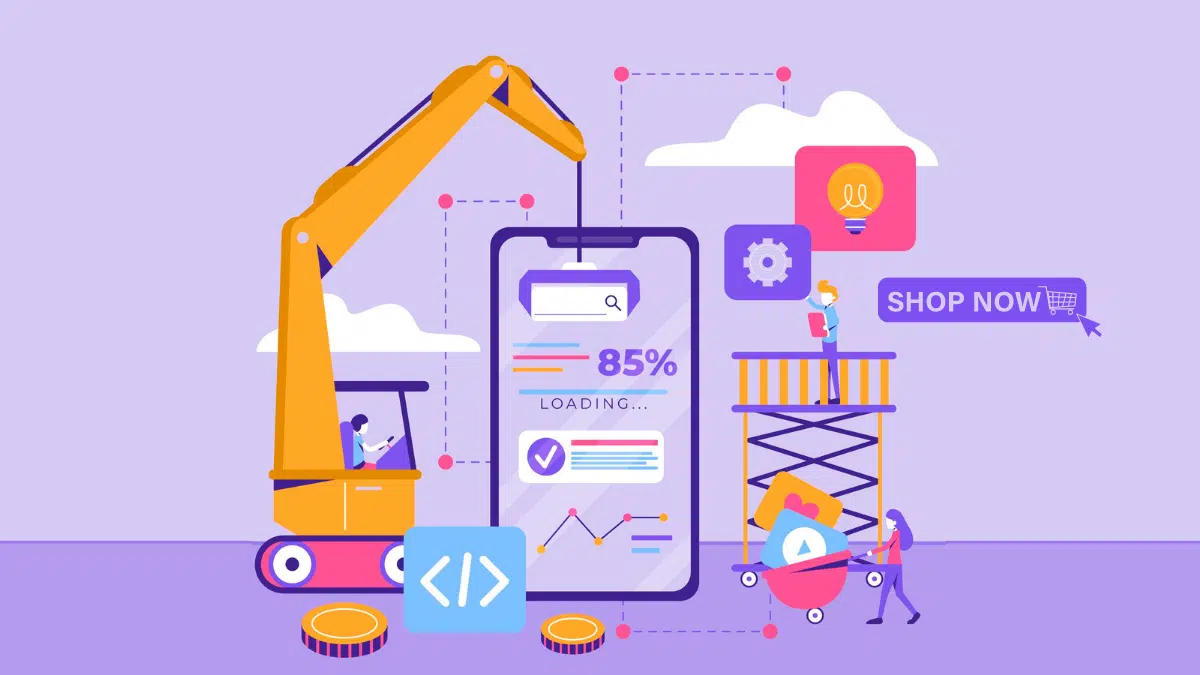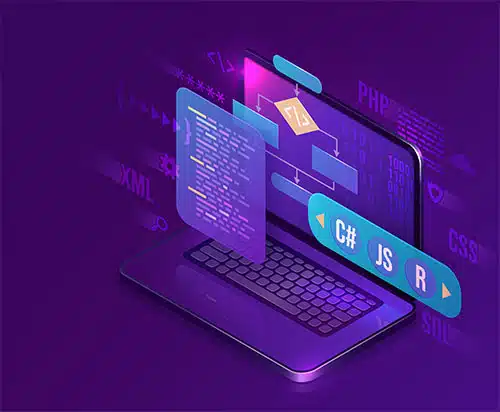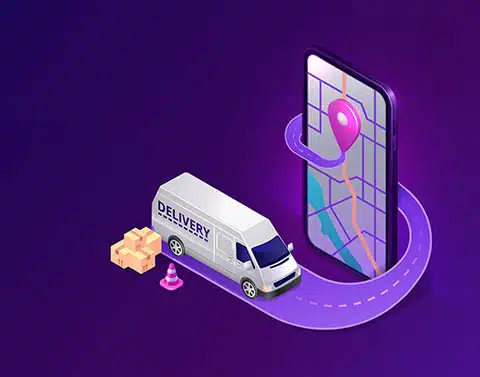The digital age has revolutionized the way we live, work, and shop. Online shopping has become increasingly popular, with an increase in consumers preferring to shop online instead of visiting physical stores. With the rise of e-commerce, businesses are looking for new and innovative ways to reach their customers. One such way is to build an online e-commerce app.
An online shopping app allows businesses to connect with their customers more easily and conveniently. It provides customers with a seamless shopping experience, from browsing products to making purchases and tracking orders. In this blog, we will discuss the various aspects of building an e-commerce app, from understanding the importance of e-commerce to choosing the right platform and implementing key features of successful e-commerce apps.
The Rise of E-Commerce
E-commerce has been rising for the past years, with more consumers preferring to shop online. According to Statista, global e-commerce sales amounted to 5.2 trillion US dollars in 2021 and are expected to reach 8.1 trillion US dollars in 2026.

This growth is driven by several factors, including:
- Convenience: Online shopping allows customers to shop from the comfort of their homes, without having to visit physical stores.
- Availability: E-commerce stores are open 24/7, allowing customers to shop whenever they want.
- Variety: E-commerce stores offer a wide range of products, often more than physical stores.
- Price: E-commerce stores often offer lower prices than physical stores, due to lower overhead costs.
Understanding the Innovation in Online Shopping Apps
Online shopping apps have brought innovation to the e-commerce industry, providing customers with a seamless and convenient shopping experience. These apps offer a range of features, from product catalogs and search to shopping carts and payment integration. Some of the latest trends in online shopping apps include:
- AR/VR integration: Augmented and Virtual Reality technologies allow customers to see products in 3D and try them on before making a purchase.
- Chatbots: Chatbots provide customers with instant support and assistance, improving the overall shopping experience.
- Voice search: Voice search allows customers to search for products using voice commands, making the process faster and more convenient.
Why Create a mobile app for an Online Store?
building an e-commerce app can benefit businesses in several ways, including:
- Increased revenue: Online shopping apps allow businesses to reach a wider audience and increase their sales.
- Improved customer experience: Online shopping apps provide customers with a convenient and seamless shopping experience, improving customer satisfaction.
- Enhanced customer engagement: Online shopping apps allow businesses to engage with their customers through push notifications and personalized offers.
- Brand recognition: Online shopping apps can help businesses build their brand and increase their visibility in the market.
Importance of E-Commerce in Today’s Market
E-commerce has become an essential part of today’s market, with businesses of all sizes turning to online sales to reach their customers. According to Shopify, global e-commerce sales were 4.9 trillion US dollars in 2021 and expect to grow by 50% and reach 7.4 trillion US dollars in 2025. This highlights the importance of e-commerce in today’s market and the need for businesses to have an online presence.
What are the steps to build an Online Shopping App?
Now that you know the importance of an online shopping app, let us dive into how to create an e-commerce app:
1. Market Research and Idea Generation:
This is the first and the most crucial step in e-commerce app development. You need to understand the market and your potential customer’s needs and preferences. You can conduct surveys, research your competitors, and study market trends to gather insights.
2. Planning and Designing the User Interface:
Once you have a clear understanding of your target audience, you can start planning and designing the user interface. It is essential to create a user-friendly and visually appealing app that is easy to navigate. You can hire a UX designer to create wireframes and mockups.
3. Backend Development and Database Integration:
After designing the user interface, you can move on to the backend development and database integration. You need to choose the right programming language and framework to build the backend of your app. You can use popular frameworks like Laravel, Ruby on Rails, or Django.
4. Frontend Development and User Experience Design:
After completing the backend development, you can start working on the front-end development and user experience design. You need to ensure that the app is responsive and compatible with different devices and platforms. You can use popular front-end frameworks like React, Vue.js, or Angular.
5. Testing and Quality Assurance:
Once you develop a mobile app for an online store, you need to test it thoroughly to ensure that it is free from bugs and errors. You can use manual testing and automation testing tools to test the app’s functionality and performance. You can also conduct beta testing with a select group of users to gather feedback.
6. Ensuring Security and Privacy:
Security and privacy are critical considerations when building an online shopping app. You need to ensure that the app is secure and protected from cyber threats. You can use encryption and other security measures to protect user data.
7. Deployment and Launch:
Once the app is tested and refined, you can deploy it to the app stores and launch it. You need to ensure that the app meets the app store guidelines and is optimized for search engines.
Here is the guide to deploying an app to the app store:
Familiar challenges in building an online shopping app and how to overcome them?
Building an online shopping app is not an easy task, and it comes with its own set of challenges. Some of the usual challenges in building an online shopping app include:
1. Technical complexity:
Building a shopping app involves complex technical aspects such as database integration, payment gateways, and API integration. These complexities can make it difficult for developers to build an app that is both user-friendly and functional.
To overcome this challenge, it is important to hire experienced app developers who have the necessary technical expertise to build your app.
2. Security:
Security is a major concern when it comes to e-commerce apps. With sensitive customer information such as credit card details and personal information being shared on the app, it is important to ensure that your app is secure.
To overcome this challenge, it is important to implement secure payment integration, use SSL encryption, and follow industry-standard security practices.
3. User experience:
User experience is a critical factor in the success of any app. Building an app that is intuitive, easy to use, and meets the needs of users is essential.
To overcome this challenge, it is important to conduct thorough user research, design the app with user experience in mind, and test the app extensively before launching it.
4. Integrating payment gateways:
Integrating payment gateways can be challenging due to the complex payment processing systems. You can use popular payment gateways like PayPal, Stripe, or Braintree.
5. Managing large volumes of data:
Online shopping apps deal with large volumes of data, including product catalogs, user profiles, and transactions. You can use cloud-based solutions like AWS, Google Cloud, or Azure to manage your data.
Best practices for enhancing User Security and Privacy in your app
Security and privacy are critical considerations when building an online shopping app. Here are some best practices to enhance user security and privacy:
- Secure Authentication: Use strong passwords, two-factor authentication, and biometric authentication to ensure the user is authenticated before accessing the app.
- Data Encryption: Use encryption to protect user data while it is transmitted or stored in the app.
- Regular Updates: Regularly update your app with security patches and software updates to avoid vulnerabilities.
- User Permissions: Ask for user permissions only when needed and inform them about how their data will be used.
- Secure Payment Integration: Use secure payment gateways and SSL certificates to ensure the safety of payment transactions.
- User Data Deletion: Give users the option to delete their data from your app when they no longer need it.
- Regular Security Audits: Conduct regular security audits to identify vulnerabilities and fix them.
Importance of Marketing and Promoting Your Online Shopping App
Marketing and promotion are essential for the success of any app. Here are some ways to market and promote your online shopping app:
- App Store Optimization: App store optimization involves optimizing your app listing to improve its visibility in the app store. This involves using relevant keywords, optimizing the app description, and using high-quality visuals.
- Social Media Marketing: Social media marketing involves promoting your app on social media platforms like Facebook, Twitter, and Instagram. You can create social media campaigns, run paid ads, and collaborate with influencers to promote your app.
- Email Marketing: Email marketing involves sending promotional emails to your subscribers. You can use email marketing to announce app updates, offer discounts, and run campaigns.
- Influencer Marketing: Influencer marketing involves collaborating with influencers in your niche to promote your app. Influencers can help you reach a larger audience and build credibility for your app.
Latest Trends and Technologies in the Field of E-Commerce
E-commerce is an ever-evolving industry that is constantly evolving. Here are some latest trends in the e-commerce app development:
- Voice Commerce: Voice commerce involves using voice assistants like Alexa and Google Assistant to shop online. This technology is rapidly gaining popularity and is expected to become more widespread in the coming years.
- AI-Powered Personalization: Artificial Intelligence (AI) is being used to personalize the shopping experience for users, based on their browsing and purchasing history.
- Augmented Reality (AR) and Virtual Reality (VR): AR and VR technologies are being used to offer immersive shopping experiences to users, allowing them to try products before purchasing.
- Chatbots and Virtual Assistants: Chatbots and virtual assistants are being used to offer personalized support to users and answer their queries in real time.
- Blockchain Technology: Blockchain technology is being used to offer secure and transparent payment transactions and prevent fraud.
- Mobile Wallets: Mobile wallets like Apple Pay and Google Wallet are gaining popularity, allowing users to make payments using their mobile devices.
Also Read: 25+ Mobile App Ideas for Startup Businesses
Conclusion
E-commerce has become an integral part of our lives, and online shopping apps have made it easier than ever before to shop for products from anywhere, anytime. Building an online shopping app requires careful planning, development, and testing to create an app that is efficient, user-friendly, and secure. By adhering to best practices and leveraging the latest trends and technologies in e-commerce app development, you can build an app that meets user needs and expectations and helps your business grow.
How JumpGrowth can help you build an eCommerce App
JumpGrowth is a custom app development company that specializes in building online shopping apps. With extensive experience in e-commerce app development, JumpGrowth can help you build an app that is tailored to your business needs and meets user expectations. Whether you are looking for Android app development, iOS app development, or Cross-platform app development, JumpGrowth has the expertise to help you build a successful online shopping app.
Frequently Asked Questions
Q: How much does it cost to build an online shopping app?
The cost of building an online shopping app varies depending on numerous factors such as the features and functionality you want to include, the complexity of the app, the development team’s hourly rate, and the platform you choose. On average, it can cost anywhere between $10,000 to $50,000 for a simple app, and for a more complex app, the cost can go up to $100,000 or more.
Q: How long does it take to develop an e-commerce app?
The time taken to develop an e-commerce app depends on several factors such as the complexity of the app, the number of features and functionality you want to include, the platform you choose, and the development team’s experience. On average, it can take anywhere between three to six months to develop an e-commerce app, but the timeline can vary based on your specific requirements.
Q: Which programming languages are best for developing a shopping app?
There are several programming languages that you can use for developing a shopping app, such as Java, Swift, Kotlin, Python, and Ruby on Rails. Each programming language has its own advantages and disadvantages. Therefore, it is essential to choose the language that best fits your project requirements, the development team’s expertise, and the platform you choose.
Q: What are the best practices for ensuring app security?
Ensuring app security is crucial for any e-commerce app. Here are some best practices that you can follow to ensure app security:
- Use strong encryptions for all sensitive data
- Use two-factor authentication for login
- Regularly update your app and server software to fix any security vulnerabilities
- Use secure payment gateways for processing payments
- Implement proper access controls and permissions to prevent unauthorized access
- Regularly conduct security audits and penetration testing to identify and address security flaws
Q: How can I optimize my online shopping app for search engines?
To optimize your online shopping app for search engines, you can follow these best practices:
- Use relevant keywords in your app’s title, description, and metadata
- Optimize your app’s loading speed and performance
- Use structured data to provide relevant information to search engines
- Incorporate social media sharing and linking features to improve visibility and generate backlinks
- Regularly update your app with fresh and relevant content
- Ensure that your app is mobile-friendly and compatible with different devices and platforms.
Related Blogs:


























